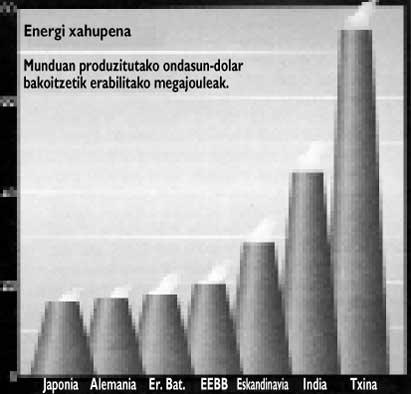Effects of the greenhouse effect on patronage
If things do not change much and UNCTAD, the UN Seminar on Trade and Development, does not change the trend, gas emission authorizations that heat the Earth's atmosphere will be listed as stocks.
At a meeting in Prague last January, UNCTAD brought together Japan, the US and EVD to exchange experiences on pollution and begin to organize the carbon dioxide emission market. The aforementioned States and associations produce 40% of the carbon dioxide from the combustion of fossil fuels and we must not forget the demand of the Climate Change Seminar to all States, that is, that the carbon dioxide emissions of the year 2000 must be the same as in 1990.
Given this situation, if a single market is created, governments can delegate part of their pollution rights to pollution-causing companies and they can sell or acquire permits between them. For example, highly polluting companies will have to buy permits from clean companies. The same can happen at the state level. If a State develops an adequate wind power or rail network, for example, it can recover some of the infrastructure costs by selling the excess pollution permits to a State that produces greater pollution.
But how to organize the distribution of licenses or what opinion is used for it? Although there may be many possibilities, the criterion based on pollution is the one that is acquiring the most strength, that is, assigning tons of coal per person on Earth. Currently the US emits 5 tons per person and China 0.5 tons. Therefore, in this case the US should buy permits from China.






